Pickled tongues might sound strange, but they're actually a traditional charcuterie. The finished product is similar to ham, and great on charcuterie plates or on a sandwich with mustard.
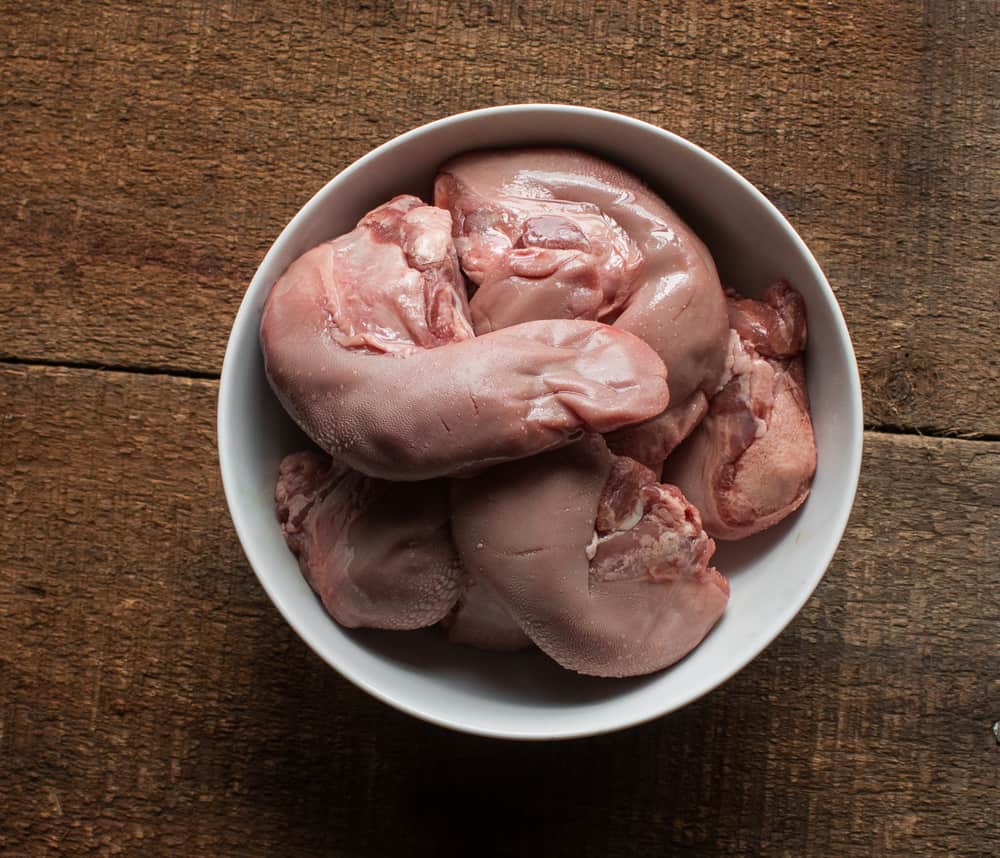
My first time cooking with tongue was at Heartland, along with most of the other organs I learned how to cook. Usually I remember us cooking them and serving them as a small plate, tossed in a salad, or maybe warm mixed with a little pasta.
I learned about pickled tongues when Lenny had us do some for a dinner senator Al Franken was going to be a part of, since he said the senator really liked them.
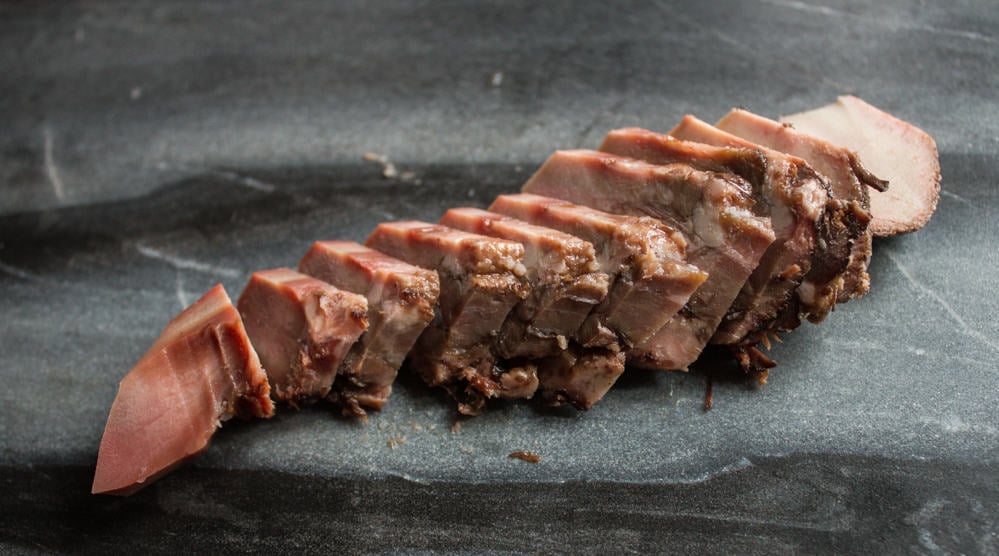
I can't remember, but I think he said he adapted the recipe from one charlie trotter had developed, in turn, I remember writing down some notes when we cooked the tongues, so that one day I could make my own rendition.
Depending on your age, pickled tongue might sound like some enlightened hipster food, or maybe just a weird organ dish old people eat, I tell you what though, it's both of these things and much more.
Calling meat pickled conjures up weird images of meat sitting in vinegar-y solutions like a science experiment. From a consumer's perspective, vegetables are ok to pickle, since they aren't made of muscle, but for some reason pickled meat (let alone a pickled tongue) seems to scare people, and I completely understand why-it's all about terminology.
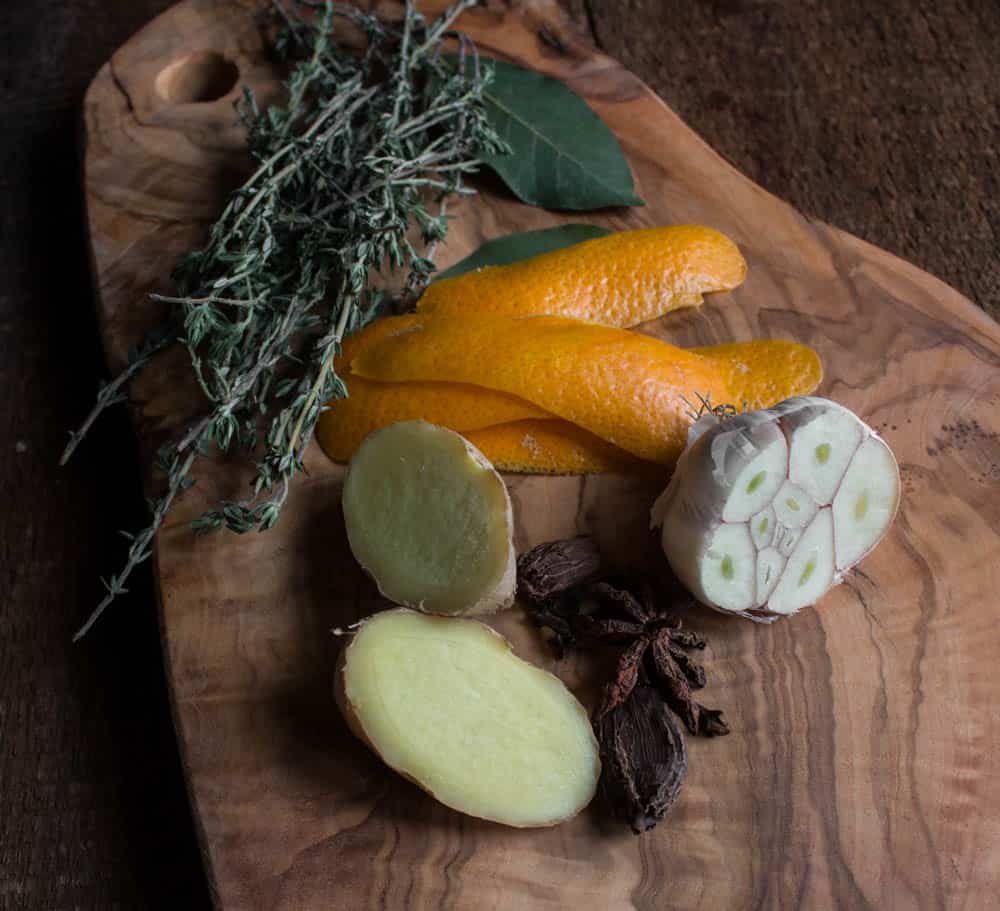
These little lamb tongues are pickled, but I find they sell a lot better when I just hide it on a charcuterie board. When customers love what they're eating and ask about it, I usually have servers describe it to them as sweet and sour pork, lamb, bison, etc, depending on what animal it came from.
If I have a minute to talk to the table and if I know them I'll tell them it's tongue, if I don't, I feel them out and decide if they're ready. Most of the time they aren't, so they can come back at a future date asking if the "sweet and sour lamb" is on the charcuterie plate, and I'm ok with that.
If customers are on the fence about eating tongue, I tell them:
"Tongue is like the softest, most luxurious ham you've ever had".
The flavors you can adjust and tweak to however you're feeling, warm spices work great, but I've definitely played around with lots of different variations. Know that whatever spices you put in the pickle will come through too, since the tongues will sit in the mixture for a number of days before they're fully cured and ready to eat.
Pickled Lamb Tongues (or any tongue)
Equipment
- 1 large bowl or container with lid for brining
Ingredients
For the tongues
- 8 lamb tongues or 2 whole beef tongues
- 1 each carrot, onion, and a rib of celery, cleaned and roughly chopped
- 1 Tablespoons sea salt
- 2 cups cider vinegar
- 4 cups meat stock (or water in a pinch)
- ½ lb brown sugar
- 1 teaspoons pink salt sodium nitrite, not Himalayan pink salt .
Aromatics (adjust to your preference--I rarely include the same things twice)
- 1 sprig of rosemary
- 5 sprigs of thyme
- 2 bay leaves
- Zest of one orange
- 1 bulb garlic halved
- ¼ cup chopped fresh ginger
- 1 teaspoon red pepper flakes
Dried Spices
- ½ inch piece of cinnamon
- 2 whole star anise
- 5 allspice berries
- 1 tablespoon mustard seed
Instructions
- Toast the dried spices. Combine all the ingredients in a small pot that will fit the tongues snugly cover, and bring to a gentle simmer. Cook for 2 hours on the lowest heat possible, covered, until the lamb tongues are completely tender.
- Remove the tongues to a cutting board with a slotted spoon and allow them to cool until you can handle them, then peel with your hands or a paring knife.
- Transfer the lamb tongues and their liquid to a container, seal tightly, label and date, then allow the tongues to age for 5 days completely covered by the pickling liquid.
- After five days, you can remove the lamb tongues, slice, and eat. Discard the liquid. If you are not going to eat the pickled tongues right away, make sure to leave them underneath the pickling liquid in an airtight jar in the fridge, or store them in a freezer, tightly wrapped in plastic, labeled and dated.
- If you want to freeze the tongues for storage, you may want to leave the skin on to help resist freezer burn. Freezing is a really great option here, and was how I used to prep 20-30 lbs of tongues at a time for my house made charcuterie plate.

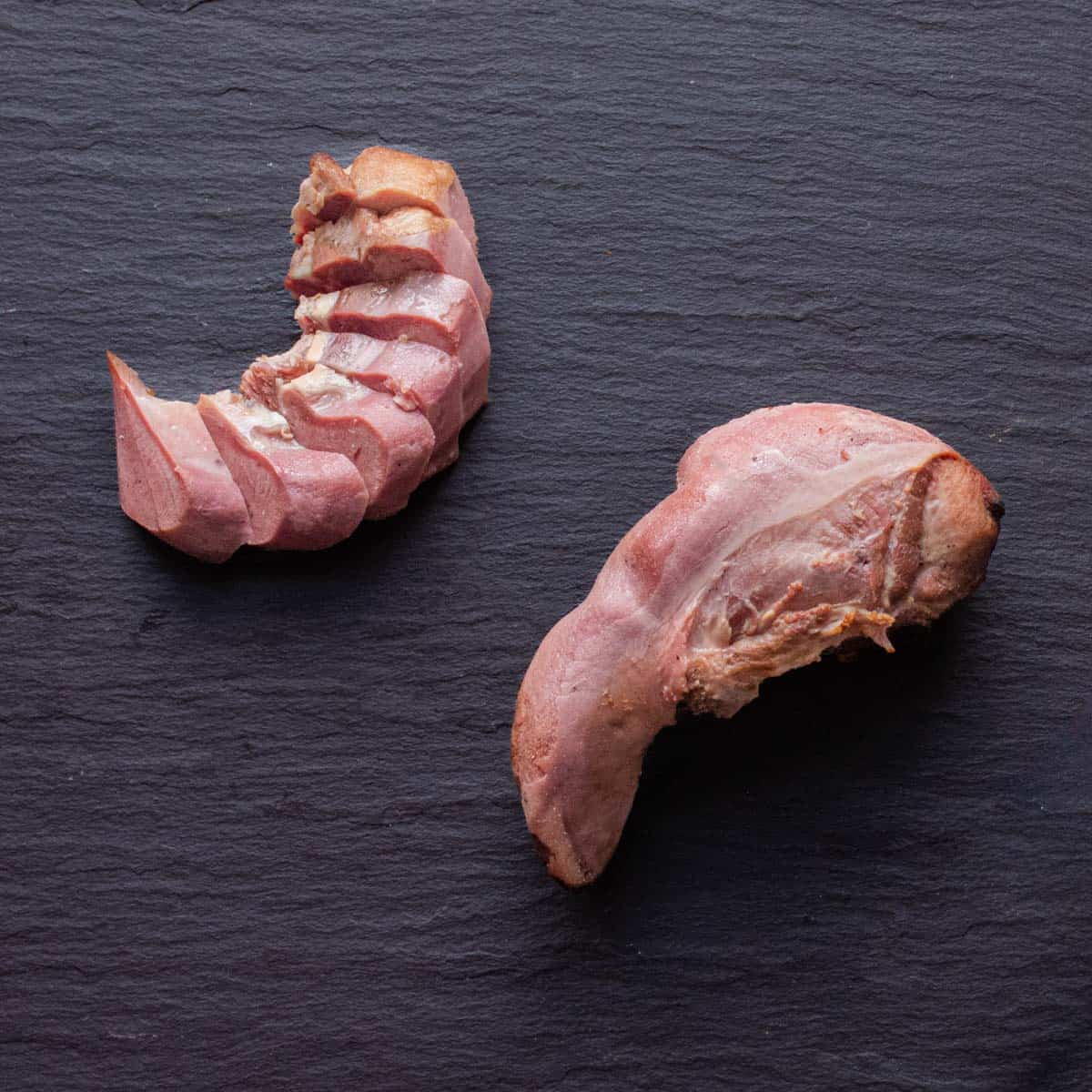
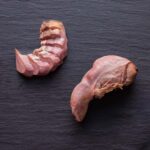
holly
I've made corned beef tongue before and it was delicious. This sounds great, too! One question: is the 5 day pickling step at room temp or refrigerated?
Alan Bergo
In the fridge, always.
Artemis
This recipe is what dreams are made of. If I wanted to keep the sweetener to the barest minimum, what would that be?
Alan Bergo
Artemis, yes it is. This was one of the most popular things on my old household charcuterie board. With the sugar, keep in mind that the vast majority of the sugar dissolves into the brine, and is discarded. That being said, I adjusted the recipe down from my original restaurant proportions here. Go ahead and make it with 1 lb of sweetener of your choice, molasses and brown sugar being the best. If you reduce the sweetener to less than a pound that it might taste too salty.
Jim Morrissey
Trying to find a source to purchase pickled lamb tongue on line. Frozen tongue shipped would be acceptable.
Alan Bergo
http://www.shepherdsongfarm.com is where I buy mine, they ship frozen across the country. Goat too. I'm a consultant for them, and it's the best lamb i've ever had.